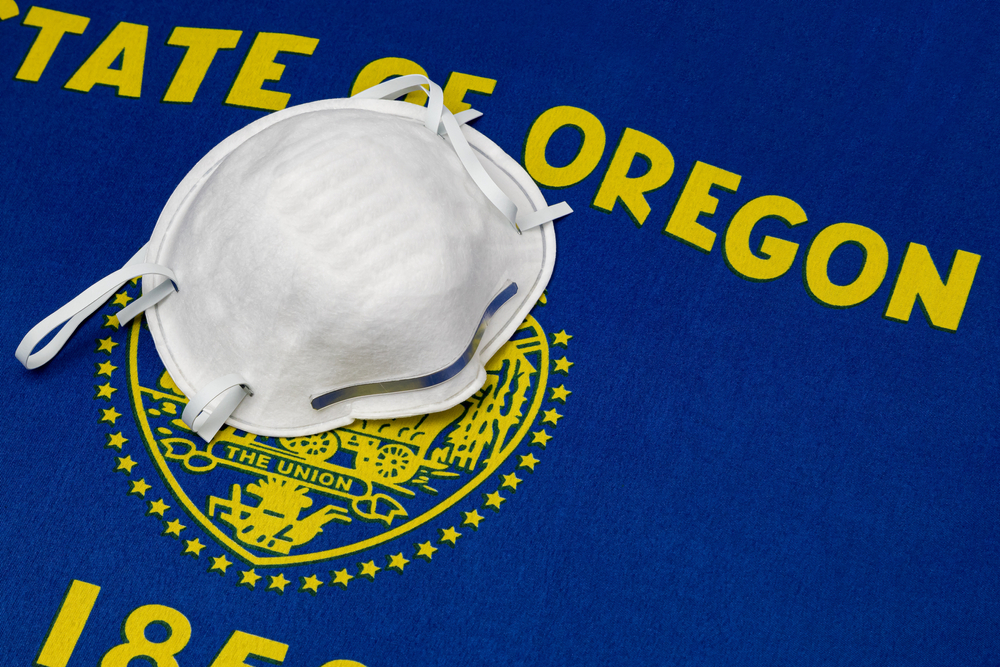The Oregon Occupational Safety and Health Division (Oregon OSHA) has proposed a permanent standard for workplace COVID-19 exposures. Oregon would become the second state after Virginia to adopt a permanent COVID-19 infectious disease standard.
On March 11, 2020, the World Health Organization declared a COVID-19 pandemic. Last year, California, Michigan, Oregon, and Virginia adopted emergency temporary standards (ETSs) for COVID-19. Oregon’s ETS took effect on November 16, 2020, and expires May 4.
On January 27, Virginia adopted a permanent standard. The Virginia rule established a range of exposure risk levels and requires a series of control measures based on the assessed level of risk.
“The public health emergency triggered by COVID-19 remains a significant concern in Oregon–as we know, we have not yet defeated this disease and we clearly will not have done so by the time the temporary rule expires,” Oregon OSHA Administrator Michael Wood said in an agency statement.
“As a result, it is critically important that we carry forward measures that we know are effective at combating the spread of this disease and reducing risks in the workplace,” Wood added.
Changes proposed for the permanent rule would include:
- Requiring employers to consider alternatives to transporting multiple workers in a single vehicle, although such transportation would not be prohibited—Virginia’s permanent standard contains a similar requirement for employers to eliminate the need for employees to share work vehicles.
- Modifying the ventilation measures so that employers with more than 10 employees and that have existing ventilation systems must certify in writing that they are running their systems in line with current requirements; however, the proposed rule would not require the purchase or installation of new ventilation systems.
- Requiring employers to provide written notification to employees of their rights to return to work when employees must isolate or quarantine.
- Requiring employers to cooperate with public health authorities seeking to arrange for vaccination in the workplace—the temporary rule contains a similar provision mandating cooperation when public health officials must perform COVID-19 testing in the workplace.
- Requiring healthcare employers to provide respirators to employees working with known or suspected COVID-19-positive patients unless employers demonstrate a genuine shortage and their good-faith efforts to resolve respirator shortages.
The proposed permanent rule also would strengthen regulatory language to discourage the use of face shields as a substitute for masks or face coverings but retain an option for using face shields as a source control. Face shields have been shown to be less effective than masks or facial coverings at controlling the spread of respiratory droplets.
Oregon OSHA will hold virtual public hearings at 10 a.m. PST on February 23 and February 26 and at 5 p.m. on March 3 and March 4.
On January 21, President Joe Biden ordered the Occupational Safety and Health Administration (OSHA) to decide by March 15 whether to establish a federal COVID-19 ETS. On January 29, OSHA issued a stronger set of workplace health and safety guidelines for protecting employees from COVID-19 exposures.
The federal guidelines, which may suggest the outlines of a federal ETS, include recommendations that employers conduct workplace hazard assessments and establish prevention programs of infection control measures, as well as encouraging potentially infected workers to remain at home; setting up antiretaliation programs to protect workers reporting their safety and health concerns; and providing or coordinating COVID-19 vaccination at no cost to employees.
Safety advocates applauded the stronger guidelines as a “first step” but called on the agency to establish enforceable standards as a baseline for employer compliance.

